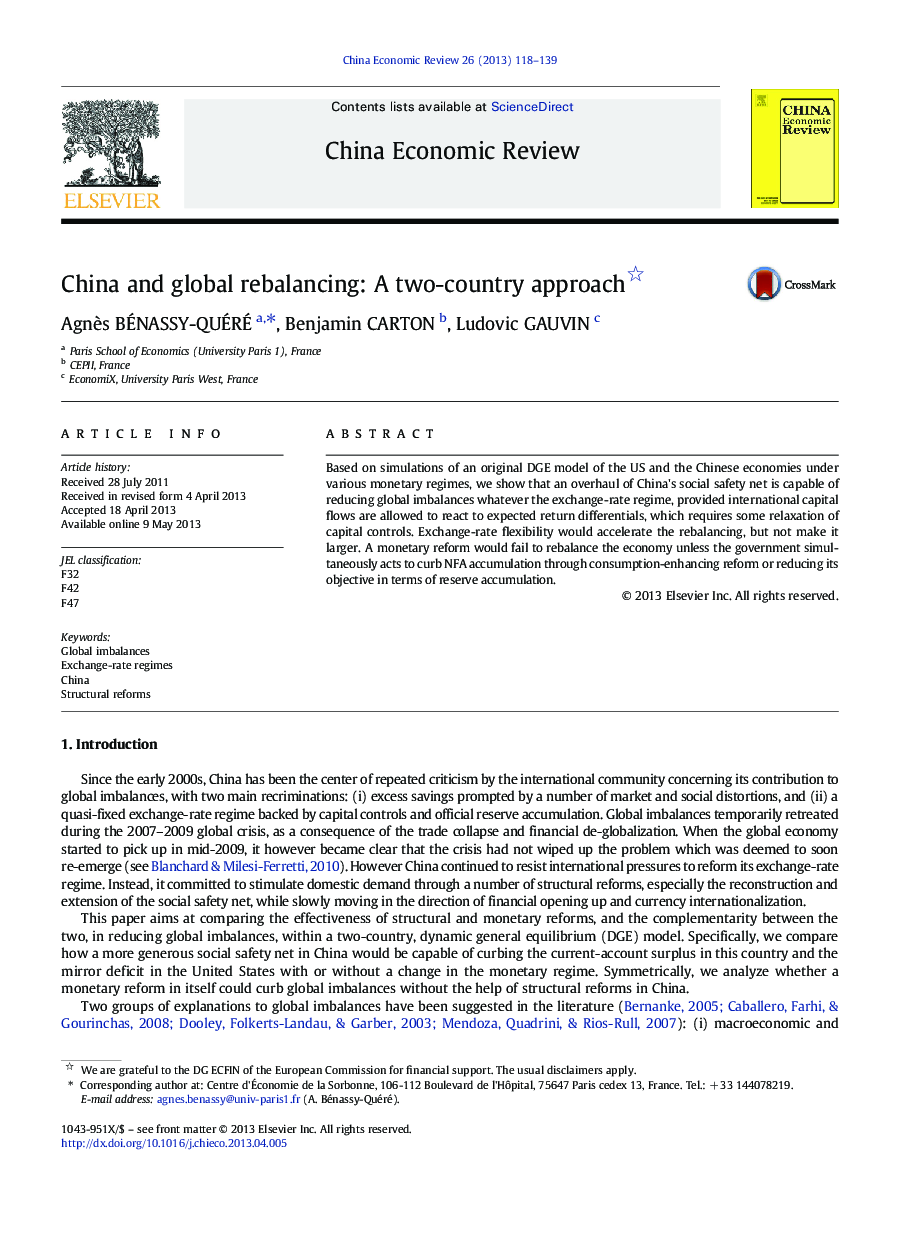| Article ID | Journal | Published Year | Pages | File Type |
|---|---|---|---|---|
| 5047575 | China Economic Review | 2013 | 22 Pages |
â¢Improving China's social safety net can contribute to reducing global imbalances.â¢It however requires some relaxation of capital controls in China.â¢Exchange rate flexibility would accelerate the rebalancing but not magnify it.â¢A monetary reform in itself would fail to reduce global imbalances.â¢Coupling with official reserve disaccumulation, it can contribute to rebalancing.
Based on simulations of an original DGE model of the US and the Chinese economies under various monetary regimes, we show that an overhaul of China's social safety net is capable of reducing global imbalances whatever the exchange-rate regime, provided international capital flows are allowed to react to expected return differentials, which requires some relaxation of capital controls. Exchange-rate flexibility would accelerate the rebalancing, but not make it larger. A monetary reform would fail to rebalance the economy unless the government simultaneously acts to curb NFA accumulation through consumption-enhancing reform or reducing its objective in terms of reserve accumulation.
